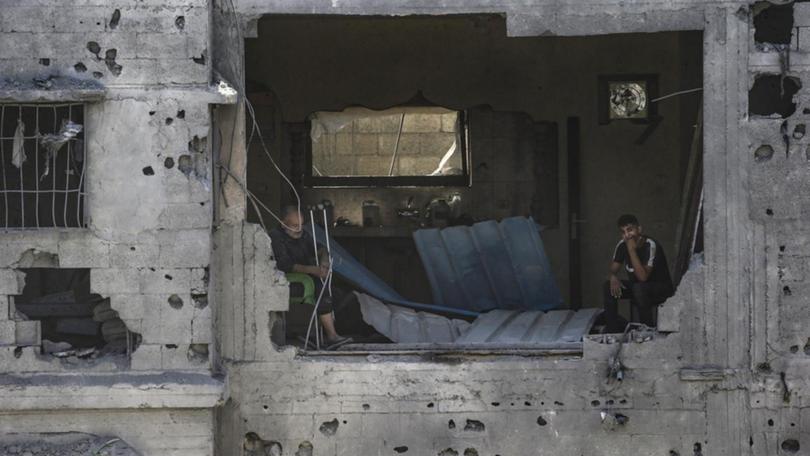Gaza Strip: Israeli tanks push into Rafah, Hezbollah issues warning

Israeli tanks backed by warplanes and drones have advanced deeper into the western part of the Gaza Strip city of Rafah, killing eight people, according to residents and Palestinian medics while the head of Lebanon’s Hezbollah warned Israel of the consequences of a full-fledged war.
Rafah residents said the Israeli tanks moved into five neighbourhoods after midnight.
Heavy shelling and gunfire hit the tents of displaced families in the al-Mawasi area, further to the west of the coastal enclave, they said.
Sign up to The Nightly's newsletters.
Get the first look at the digital newspaper, curated daily stories and breaking headlines delivered to your inbox.
By continuing you agree to our Terms and Privacy Policy.Eight months into the war, there has been no sign of let up in the fighting as efforts by international mediators, backed by the United States, have failed to persuade Israel and Hamas to agree to a ceasefire.
Twelve Palestinians were also killed in an Israeli strike that hit a group of citizens and merchants in the south of the Gaza Strip, medical sources told Reuters on Wednesday.
The people were hit as they waited for convoys of aid trucks carrying goods through the Kerem Shalom crossing in Salahuddin Road northeast of Rafah, the sources added.
Israeli forces have laid waste to much of Gaza and seized most of the Palestinian territory but have yet to achieve Israel’s stated goal of wiping out Hamas and freeing Israeli hostages.
Medics and Hamas media said eight Palestinians were killed in al-Mawasi and many families fled north in panic.
They did not identify the fatalities, and the Israeli military said it was looking into the report.
Residents said Israeli army forces blew up several homes in western Rafah, which had sheltered more than half of Gaza’s 2.3 million people before last month, when Israel began its ground offensive and forced most of the population to head northwards.
Some United Nations and Palestinian figures put those who remained at fewer than 100,000 people.
An Israeli commander briefing military correspondents in Rafah on Tuesday named two more locations there - Shaboura and Tel al-Sultan - where the army planned to take on Hamas fighters.
“The Hamas battalions there are not yet well worn down and we need to dismantle them completely. We estimate it at more or less a month, at this intensity,” Colonel Liron Batito, head of the Givati Brigade, told Army Radio.
The Israeli military remained in control of the border between Rafah and Egypt.
Footage circulated on social media showed the Rafah crossing, the only window for most of Gaza’s population with the outside world, was destroyed, buildings burnt, and Israeli tanks positioned there with the flag of Israel flying over some places.
The Israeli military said aid into Gaza had not been impeded by the damage.
In Lebanon, the head of Hezbollah said on Wednesday that nowhere in Israel would be safe if a full-fledged war breaks out between the two foes.
Hezbollah has been trading fire with Israel for more than eight months in parallel with the Gaza war.
On Tuesday, the group published what it said was drone footage of sensitive military sites deep in Israeli territory.
In a televised address on Wednesday, Hezbollah chief Sayyed Hassan Nasrallah said “there will be no place safe from our missiles and our drones” in Israel in the event of a broader war.
The group also had “a bank of targets” that it could target in precision strikes, he said.
Israel “knows that what also awaits it in the Mediterranean is very big ...In the face of a battle of this magnitude, it knows that it must now wait for us on land, in the air and at sea,” Nasrallah added.
The group first showed it could hit a vessel at sea by striking an Israeli warship in the Mediterranean during their 2006 war.
Nasrallah also threatened Cyprus for the first time, accusing it of allowing Israel to use its airports and bases for military exercises.
“The Cypriot government must be warned that opening Cypriot airports and bases for the Israeli enemy to target Lebanon means that the Cypriot government has become part of the war and the resistance (Hezbollah) will deal with it as part of the war,” Nasrallah said.
